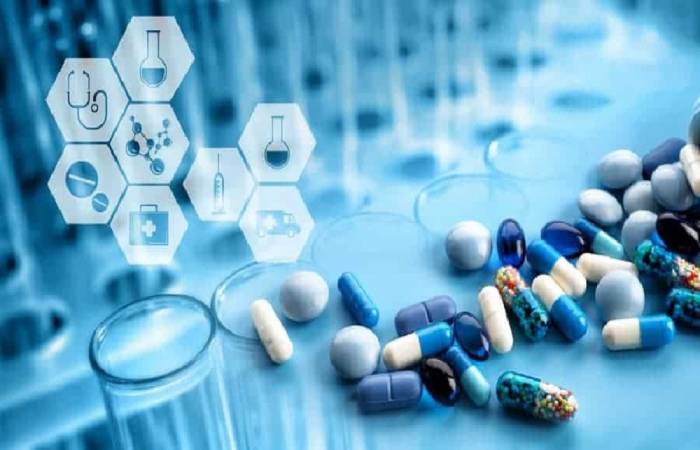Pharmacy Course Fees
Introduction of Pharmacy Course Fees
Pharmacy courses are essential for educating future pharmacists who will play a crucial role in healthcare by ensuring patient safety, providing accurate medication information, and contributing to medical research and innovation. The courses typically cover topics related to pharmaceutical science, drug interactions, patient care, and pharmacy management.
The eligibility criteria for pharmacy courses can vary depending on the course level, including undergraduate, postgraduate, and doctoral levels. The core subjects to pursue pharmacy courses are Physics, Biology, and Chemistry. Candidates with 50% marks or equivalent are eligible to pursue pharmacy courses.
Nalanda School of Management College, Lovely Professional University, Jamia Hamdard, and Manipal College of Pharmaceutical Sciences are the top colleges offering Pharmacy courses in India. The average fees of these courses can range from INR 40,000-10,00,000
Job opportunities after the pharmacy course include Pharmacologist, Pharmacist, Drug Inspector, Research Associate, etc. A pharmacist can earn a usual salary of INR 2.4 – 3 LPA and INR 4.5 – 5.75 LPA after having some work experience.
Types of Pharmacy Courses
Depending on interests and career goals, applicants can choose a course that aligns with the specific area of Pharmacy they wish to pursue. Assumed below are the details on the types of courses:
Certificate Pharmacy Courses
- The certificate pharmacy course can be a great way to gain specialized knowledge or explore a new area within the pharmacy field.
- These courses are short-term educational programs that provide foundational knowledge and skills in pharmacy-related topics.
- They remain purposely designed to offer practical training and proficiency in specific areas of pharmacy practice or pharmaceutical sciences.
- Certificate courses in Pharmacy can vary in duration, ranging from a few weeks to several months, and they often remain targeted at individuals seeking to improve their skills or knowledge in a definite aspect of Pharmacy without committing to a full degree program.
Pharmacy Courses Scope
The scope of Pharmacy remains diverse and evolving, with opportunities to contribute to healthcare, research, and patient well-being in many fields, including pharmacy stores, armed forces, government hospitals, and pharmaceutical industries.
Looking at the Pharmacy profession scope in the healthcare industry, a survey report called ‘Pharmacy at a Glance 2015-2017’ by the International Pharmaceutical Federation (FIP), the Pharmacy communal is the most significant contributor, with 75.1 percent of listed pharmacists employed followed by hospital pharmacy with 13.2 percent.
The services provided by Pharmacy experts include improving the use of medicines, product-focused services, and public health services.
Conferring to IBEF, India is the largest provider of drugs across India. The Indian pharmaceutical industry meets more than half of the worldwide demand for various vaccines, 40% of the generic demand in the United States, and 25% of the total medical demand in the United Kingdom.
About Bachelor of Pharmacy Course Fees (B. Pharm)
The Pharmacy field offers many career opportunities (Career options after B.Pharm and D.Pharm). If you wish to make your career in Pharmacy, you can choose one of the courses. It may be a diploma, degree, or PG course. Bachelor of Pharmacy (B. Pharm) is an undergraduate course in Pharmacy. The B.Pharm is a popular job-oriented course among science students after the 12th class. The students study drugs, medicines, Pharmaceutical Engineering, and Medicinal Chemistry in this course. This course provides many job opportunities in both the public and private sectors.
Why Choose Bachelor of Pharmacy Course Fees (B. Pharm)
Various career options are available for science students after completing a B.Pharm degree. The students can go for higher studies in Pharmacy, i.e., a Master of Pharmacy. This field is one of the evergreen fields in the medical sector, with an increasing demand for Pharma professionals every year. After completing this degree, the students can practice as a Pharmacist. Pharmacists can work in various hospitals and industries related to the prescription, manufacture & provision of medicines. The Pharmaceutical industry offers developing drugs and testing for quality checks per the standards.
Course “All about Pharm D”
The Pharm D course is a comprehensive program designed to equip students with the knowledge and skills necessary for a career in pharmacy practice. The Doctor of Pharmacy course usually lasts six years, combining academic courses with practical training components.
One of the distinguishing features of the Pharm D course is the inclusion of a one-year practicum, allowing students to gain practical work experience in various pharmacies. This practical component is invaluable in preparing students for the real-world challenges they may face in their professional careers.
Why study the Pharm D course?
The Doctor of Pharmacy course offers a unique combination of benefits but also gives students an edge in a tight market. Pharm D course is in high demand. Because pharmacists help patients and communities with their health and well-being, they are essential to society.
Professional opportunities:
The Doctor of Pharmacy course opens various career opportunities in the pharmaceutical industry. Healthcare sector, research institutes, academia, and government agencies.
Clinical examination:
The Pharm D course curriculum emphasizes clinical training, allowing students to gain hands-on experience in patient care.
Extended scope of practice:
Compared to traditional pharmacy courses, Pharm D courses offer an expanded scope of practice, allowing pharmacists to take on more clinical responsibilities. Such as medication therapy management, patient education, and shared healthcare decision-making.
Job demand and stability:
There is a high demand for pharmacists in various healthcare settings due to factors, such as an aging population, increasing prevalence of chronic diseases. And advances in pharmaceutical research.

